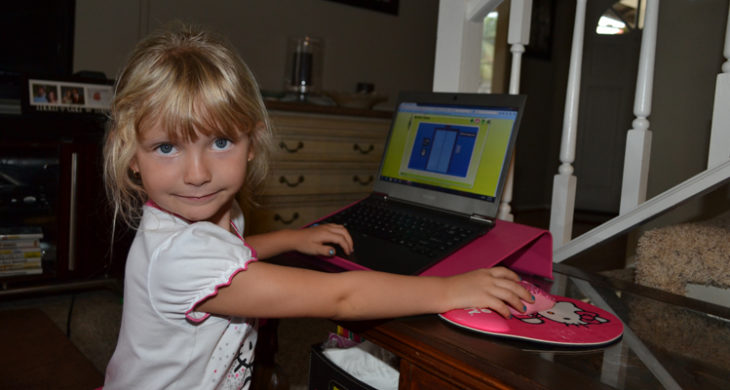When people think of ADHD (attention-deficit hyperactivity disorder), they often think of the common symptoms of the condition, including inattentiveness, impulsivity, and hyperactivity. But this list of symptoms doesn’t tell the whole story.
The fact is, children who have ADHD, also referred to as ADD, often share a number of beneficial traits that can potentially contribute to their success, both in school and in the workplace. ADHD students are often extremely creative, curious, passionate, and energetic—all attributes of successful entrepreneurs and inventors.
Just take a look at the following list of famously successful adults who also had ADHD.
Albert Einstein
Walt Disney
Thomas Edison
John Lennon
Mozart
Winston Churchill
Henry Ford
Stephen Hawking
Jules Verne
Alexander Graham Bell
Woodrow Wilson
Beethoven
Leonardo da Vinci
The key to helping students with ADHD succeed is to remember that they are individuals, with individual strengths and challenges. Instead of seeing their unique traits as problems to be suppressed, celebrate their differences and look for the benefits.
Keeping that in mind, here are some strategies that can be helpful for children with ADHD.
Allow Exploration of Many Interests
Many ADHD students will be interested in a variety of subjects and want to learn more. Allowing them to explore these areas and discover their strengths will be helpful to their confidence and their eventual career aspirations. “I prefer to distinguish ADD as attention abundance disorder, says author and professional coach, Frank Coppola. “Everything is just so interesting . . . remarkably at the same time.”
Support the Strengths of Your ADHD Child
While ADHD students may have trouble focusing on subjects that don’t hold their interest, they tend to excel at their strengths. Once you’ve determined what those strengths are, be sure to encourage your student to pursue the areas that most interest him or her. “I was always aware of the fact that I excelled with numbers, even though I struggled with reading,” says successful investor Charles Schwab, who has ADHD. “I focused on my strengths and used my natural affinity for numbers and economics as the focus of my career.”
Facilitate the Best Learning Model
While trouble focusing can be a challenge for many ADHD students, others also tend to hyperfocus on a topic and, therefore, are not ready to leave a particular subject. Either tendency can be a problem in a traditional brick-and-mortar school. Online learning can be an excellent alternative for such students because it allows them to focus on one subject for as long as they need—moving on to another subject when they lose interest or keeping with a subject for a longer period if they are hyperfocused on it. “They can actually get a deep dive in a subject and don’t lose time to transition from one topic to the next,” explains Robin Wise, senior manager of K12’s academic services, special programs. “Switching subjects is where we typically see lost learning time for kids who have a hard time with transition.” Some hyperfocused students may find staying with one subject for an entire day is more effective. “New K12 assignments are posted for one week, not for one day,” says Robin, “so they can do all the week’s math on Monday, all language arts on Tuesday, etc.”
Take Frequent Breaks
For kids with attention issues, taking consistent breaks is important, whether in school or with homework. Robin suggests breaking school time into 30-minute intervals with five-minute breaks in between. The breaks can also be a motivation to help students stay on track. “It is best to use a visual timer that will sound when the break ends,” says Robin. The breaks can also include a planned activity such as having a snack or walking the dog. That way the child can have something to look forward to after the learning time.
Create a Productive Learning Environment
Create a setting that has the least distractions and is comfortable for the individual student. Choose lighting that is calming as light can be a distracting stimulant. “Don’t say no to music if that is helpful,” advises Robin, “some students concentrate better with sound.” A chair on wheels for movement or even a balance ball may be effective. It can also be helpful for students to hold small trinkets like squishy balls, pens, widgets, or things with Velcro while learning or studying. The movement and the sound can help them to focus. Even doodling can be productive for some students.
Start a Routine
An established learning and homework routine keeps students organized and sets expectations. Once you determine the best time and routine for your child, try to stick to it. “Discuss a routine to complete assignments with your child that you both agree on,” Robin suggests. “If the child helps create a plan they have a greater chance of following through on it.”
Maintain an Exercise Program
Several studies have shown that exercise is beneficial for kids academically, but recent research indicates that exercise is especially helpful for kids with ADHD. Dr. John Ratey, an associate clinical professor of psychiatry at Harvard Medical School, says that exercise works like medication to improve attention and mood. “Exercise turns on the attention system, the so-called executive functions—sequencing, working memory, prioritizing, inhibiting, and sustaining attention,” he explains. “On a practical level, it causes kids to be less impulsive, which makes them more primed to learn.”
Once you and your child learn how to adapt to the ADHD symptoms that may get in the way of learning, take a moment to look at the positive aspects of the condition and be your child’s advocate. A child with ADHD is likely to look at things in new and innovative ways, and that is a beneficial trait to have. “I knew I had strengths that other people didn’t have,” says David Neeleman, Founder of JetBlue Airways, “and my parents reminded me of them when my teachers didn’t see them.”
ADHD kids often do far better with online learning than in traditional schooling because of the individualized learning model. If you think your child would excel in an online learning environment, visit K12.com, the leading provider of online education for grades K through 12, and request more information.
,










